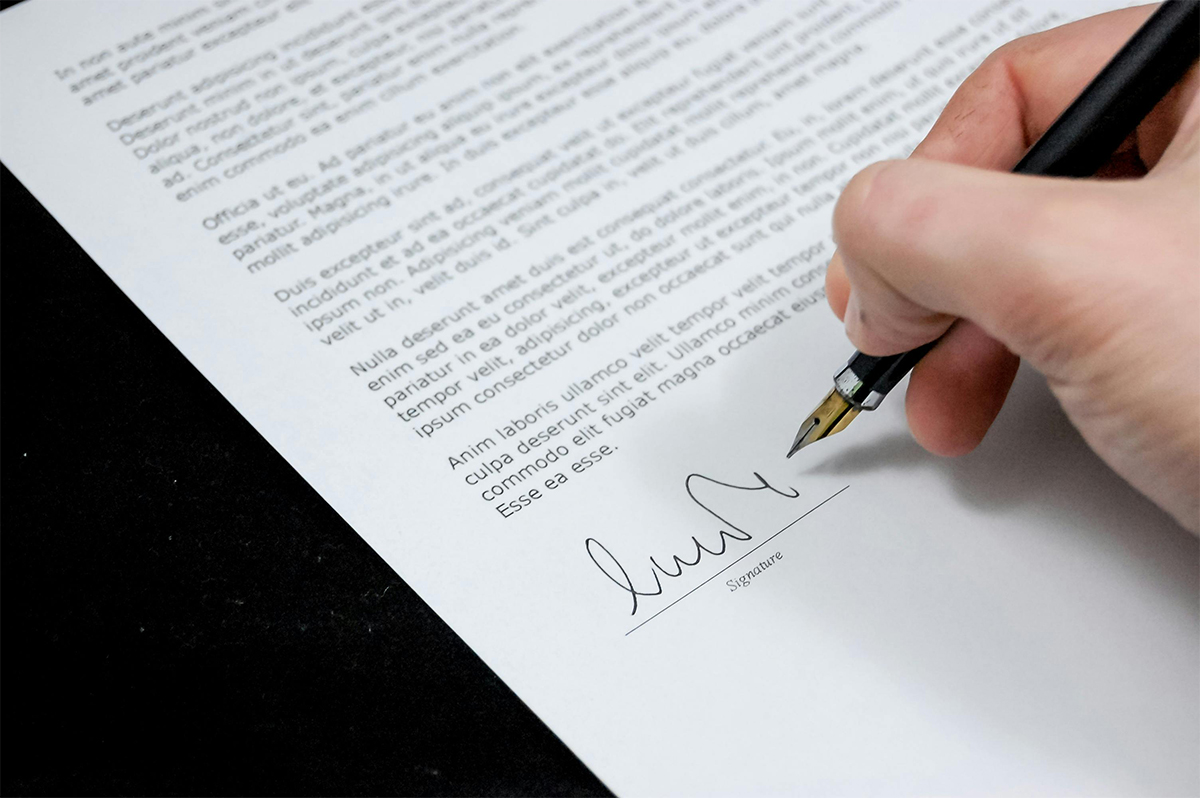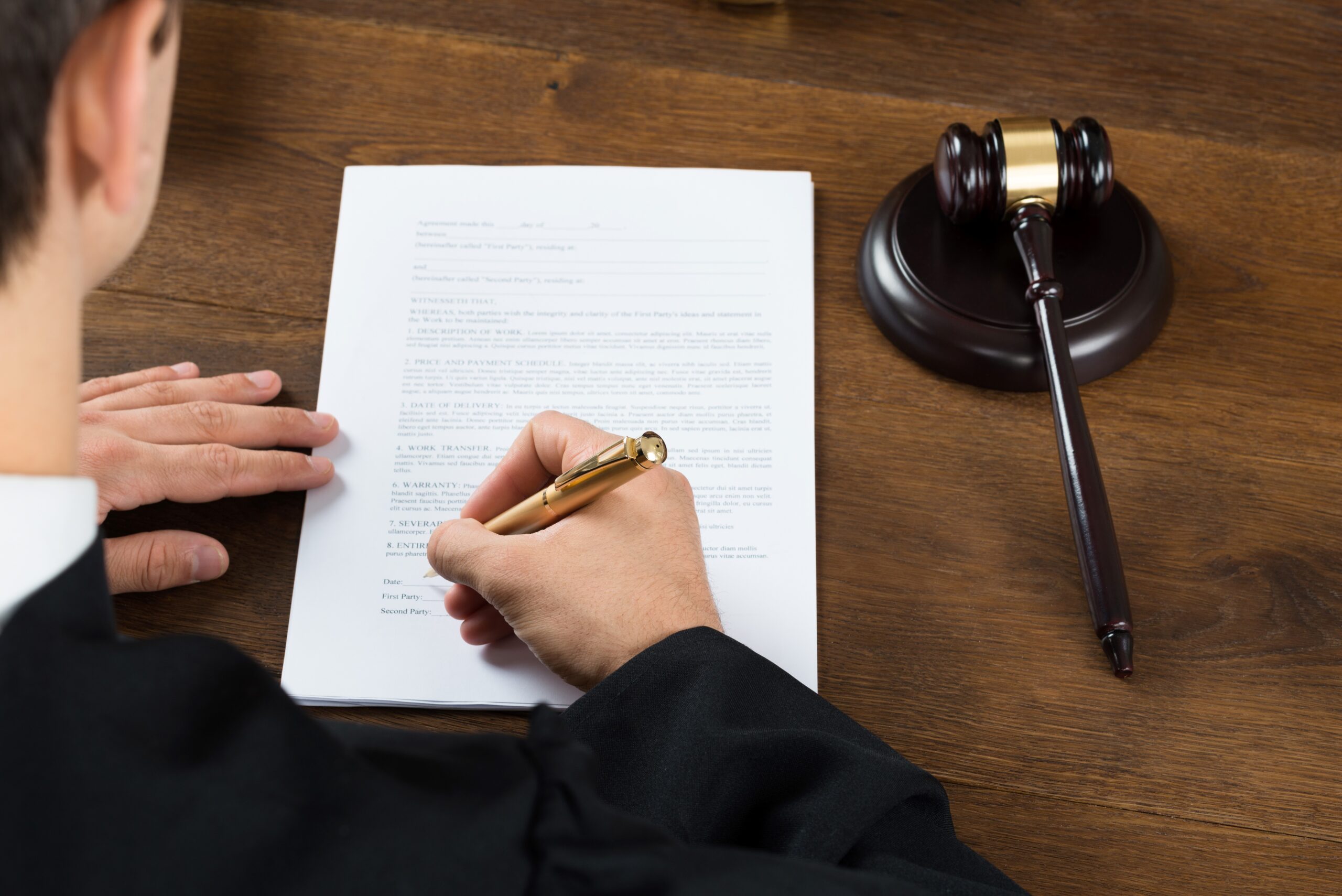Key Takeaways
- Acknowledge the harm caused, accept responsibility, and outline the steps to rectify the situation.
- Be honest and direct in your apology, acknowledging your actions and their consequences.
- Consult with a legal professional to ensure your letter is appropriately structured, addresses the court's expectations, and effectively conveys your regret.
Table of Contents
Apology Letter To Court
When writing an apology letter to the court, it is vital to understand the audience and write respectfully and professionally. Ensure that your details are stated in the document and address the judge and court appropriately. Focus on the intent and objective of the letter throughout the letter.
In the document, make sure that you acknowledge the nature of the wrongdoing and express remorse and responsibility that must be taken to rectify the situation. Also, make sure there is a closing statement of the commitment that steps are in place to rectify and improve the situation. It is essential to know that the judge or magistrate will be reading the letter and is responsible for sentencing a verdict based on the information provided and the overall intent of the defendant. Therefore, the letter should be well written with the utmost respect and sincerity and points to move forward are highlighted as correction methods.
Overall, you should ensure that the letter is addressed formally, state the case details, express regret, acknowledge the impact on the person or community, refrain from making excuses, and close the letter by showing commitment to improvement methods to avoid similar offences in the future.
Tips To Write Good Letter Of Apology To Court
When writing a letter of apology to the court, it is vital to ensure honesty and transparency regarding the offence. Do not use jargon, and write in a clear and straightforward manner. Make sure that the letter is proofread and free from any grammatical mistakes. This shows that you are maintaining professionalism and keeping it concise throughout the letter. Let us look at some key aspects to include in your letter:
- State what you did wrong and express why you believe it is wrong. Do not make excuses for your actions or downplay the situation.
- Use words that are clear and easy to understand. Avoid using big words or complex legal jargon or terminology.
- Express your feelings about your behaviour and what you have learned from the situation. This shows that you have a positive attitude and respect the court.
- Keep the letter as concise as possible but include enough details to show remorse. A well-written apology letter can help mitigate factors in your case, showing that you are remorseful and want to correct the situation.
Court Apology Letter Examples
Adhering to a standard structure when writing a court apology letter is important to show that you are effectively communicating, remorseful, and willing to change. Let’s look at some examples, such as minor criminal charges and traffic offences.
Example 1: Minor criminal charges such as shoplifting.
- In the letter, ensure that the letterhead has your name and address and the date.
- Introduce yourself and state your apology and your desire to take responsibility.
- Describe the incident and state that you understand the seriousness of the matter.
- State how your actions have affected others, such as the store’s owner and the community.
- List the steps that you have taken to address the issue. This could range from counselling to community service.
- Tell the court that you will not repeat this offence in the future.
- Conclude by apologising again and thanking the court for reading your letter.
- Sign and date the letter.
Example 2: Speeding offence.
- Include your name and address with the date at the top of the letter.
- Address the letter to “The Presiding Magistrate” or “Your Honour.”.
- Start by apologising and accepting responsibility.
- Describe the incident and your understanding of its seriousness.
- Mention how your actions have affected others, such as those in the car with you, your family, or the community.
- Detail the steps you have taken to rectify the situation, such as attending a traffic offender programme.
- Inform the court that you will not repeat the offence and will take the necessary steps to ensure this does not happen again.
- End by apologising and thanking the court for considering your letter.
- Sign and date the letter.
To write an effective apology letter, you must be sincere and concise, use formal language, avoid excuses, personalise your letter, and seek legal advice to ensure that it meets legal expectations.
Having issues crafting a compelling apology letter for court?
Our team is equipped to help write a sincere and impactful apology letter for court.
Contact us!
How To Write An Apology Letter For Criminal Or Traffic Offenses?
When writing an apology letter for criminal or traffic offences, it is important to understand the nuances of each type of offence. While both letters are aimed at showing remorse and responsibility, there are key differences in terms of approach and content.
For criminal cases, the apology letter should focus on the harm caused to the victim and community. It is important to acknowledge the severity of the offence and demonstrate remorse for your actions. The letter should also outline steps taken to rectify any issues that have occurred because of the offence. This could include counselling or treatment, and it is important to show the court that these steps have been taken to prevent future incidents.
As for traffic offences such as speeding fines NSW, it is important to be more specific. The apology letter should show the dangers of the offence, such as reckless driving or drink driving. Show that you are remorseful for putting yourself and others at risk. It is important to show steps that have been taken to rectify the problem, such as a traffic offenders programme or counselling sessions. It is important to show the court the steps that you have taken to prevent any future incidents from taking place.
The Criminal Law Group is equipped to provide assistance in writing an apology letter for criminal offences. The team’s expertise allows the letter to be well-structured, concise, and effective in conveying remorse and a commitment to rehabilitation. By hiring this legal defence team, you will be able to enhance the chance of receiving the best possible outcome when the court sees that you are truly remorseful for your actions. It is also important to determine how to prepare for consultation at a criminal law firm and to understand a guide to finding the best Sydney defence lawyers.

What Should Be Included In A Apology Letter To Judge For Drugs
When writing an apology letter to a judge for drug offences in Australia, it’s important to include several key components to ensure the letter is effective and sincere. Here are the essential elements to include:
- Start by addressing the judge or magistrate and including the name of the court handling the case. This shows respect and acknowledgement of the situation’s seriousness.
- State the drug offence that you are pleading guilty to and do not blame anyone or make excuses about the situation. For example, state that you deeply regret your hazardous behaviour in purchasing drugs on that date and at that time.
- Show that you are remorseful and state how the incident has caused harm. Explain how the situation has led to regret, shame, and a desire to change.
- Define the steps you have taken to remediate the situation that caused the offence and what needs to be done to prevent future occurrences. This could range from rehabilitation sessions and therapy to counselling.
We have years of experience helping individuals draft compelling apology letters.
Our team has years of experience navigating through the legal system. We have the resources to guide you in crafting a compelling letter that showcases your commitment to positive change.
Learn about us!
How To Show A Genuine Letter Of Remorse And Regret To Judge?
You can write a genuine letter of remorse and regret by starting with an apology. Do not make any excuses and highlight personal growth or steps that need to be taken to mitigate any future issues. Here are some key elements to be included in the letter:
- State the offence and accept responsibility for your actions. Do not play down the seriousness of the offence or blame others.
- Show that you regret your actions and the harm caused. Reflect on your actions and their impact on the victim, yourself, and the community.
- Never blame others or make excuses for the situation. Focus on taking responsibility for your actions.
- Describe any learning or personal growth that you have experienced since the offence.
- Outline steps that you have taken to rectify the situation. This could include anger management classes, traffic offenders’ programmes, or drug counselling sessions.
- Tell the judge that this offence will never be repeated and how you plan to maintain this commitment.
- Speak about your employment situation, commitments, and the impact of the criminal conviction on your life and employment.
Apology Letter To Court For Assault Or Domestic Violence
When writing an apology letter to the court for aggravated assault or domestic violence, it is important to structure the letter to show deep regret and a commitment to change. Here is some information that you should state in your letter:
- Start by addressing the judge and magistrate and acknowledging the seriousness of the assault.
- State the steps taken towards rehabilitation, including anger management courses, therapy sessions, and other programmes.
- Show a willingness to make amends and ensure it does not occur again.
- Maintain a formal and respectful tone throughout the letter while showing remorse.
- Mention any court-ordered or voluntary actions.
By following these guidelines, your apology letter can effectively convey your remorse and commitment to reform, potentially influencing the court’s sentencing decision in a positive manner.
Seeking forgiveness? We are equipped to help you with it.
Don’t underestimate the power of a sincere apology. Our team is here to help you draft an apology letter that expresses genuine remorse.
Book us today!
How To Write A Court Apology Letter For Theft Or Property Offenses?
When writing a court apology letter for theft or property offences, it is important to ensure that you acknowledge the value of the item stolen or the damage done to the property. State any restitution efforts or commitments to compensate for the damages. Thus, it is important to address the court with these key elements:
- Begin by addressing your understanding of the seriousness of the offence and the harm caused.
- State the value of the stolen or damaged property as it shows awareness of the extent of the damage.
- If restitution has been made, such as returning stolen property, then state it in your letter.
- If you have not made restitution, state that you are willing to do so. This is a statement of intent.
- Reflect on why you committed the offence and express remorse.
- Conclude by assuring the court of your intentions to avoid future mistakes like this from taking place.
Apologizing For Driving Or Traffic Offenses In Court
When apologising for driving or traffic offences in court, showing remorse and willingness to take responsibility is important. This is done by stating the seriousness of the offence, the harm or possible harm it has inflicted on others and the steps that have been taken to prevent future scenarios:
- Acknowledge the offence and take responsibility for your actions.
- To demonstrate a commitment to change, show evidence of proactive behaviour, such as completing a driving safety course or traffic offenders programmes.
- Drink driving offences show the importance of being remorseful to address issues such as dependence on alcohol and seeking counselling or treatment.
- The apology should be genuine, heartfelt, and specific to the offence. It is important to keep the apology letter concise, ideally within one page. Showing remorse and accepting responsibility increases the chance of receiving a more lenient sentence.
Take responsibility with a powerful letter.
Our resources can equip you to write an apology letter demonstrating your remorse and commitment to a better future.
Schedule an appointment!
How Should A Court Apology Letter Be Set Out?
A court apology letter in Australia should follow a standard layout that includes a few key components to ensure it is received well by the judge or magistrate. Let us look at the format:
- Begin with the name, address, contact, and date.
- Address the letter with the proper salutation, such as “Your Honour.”
- The main body should contain information about the offence, the apology, and steps to prevent future offences.
- Conclude by reiterating your remorse and expressing hope for a positive outcome.
- End the letter with “Sincerely” or “Respectfully,” followed by your full name and signature.
Do’s And Don’ts For A Court Apology Letter To Judge
When writing an apology letter to the judge, there are a few do’s and don’ts to remember. Let us look at the do’s:
- Ensure that the letter is brief, factual, and to the point.
- Accept responsibility for your actions and express genuine remorse for the harm caused.
- Acknowledge the impact of your actions on others and yourself.
- Mention steps that have been taken to address the underlying issues that led to the offence, such as counselling and rehabilitation programmes.
- Be respectful throughout the letter and consider speaking to a lawyer to ensure that the letter aligns with the legal strategies and court expectations.
The don’ts of an apology letter are:
Is It Worth Writing A Letter To The Judge?
Writing a letter to the judge can be valuable in the right situation. However, when doing so, it must be done in an effective manner. Here are some key points:
- Letters written by individuals who know the defendant, such as community leaders, can provide insight into the defendant’s character.
- Detailing the circumstances that led to the defendant’s actions, such as mental health issues, financial difficulties, and substance abuse, can help the judge understand the situation.
- Victims or their families can write letters to express the impact of the crime, which can help the judge understand the broader consequences of the defendant’s actions.
Consulting with a lawyer before submitting a letter is important to ensure that proper guidance has been received and that the content and structure of the letter are appropriate. Letters should not be used as evidence or to argue the defendant’s innocence, as this would be counterproductive. Thus, legal aides can help structure the letter so that it can be used as a powerful tool to potentially influence the outcome of the case in a positive manner.




































































